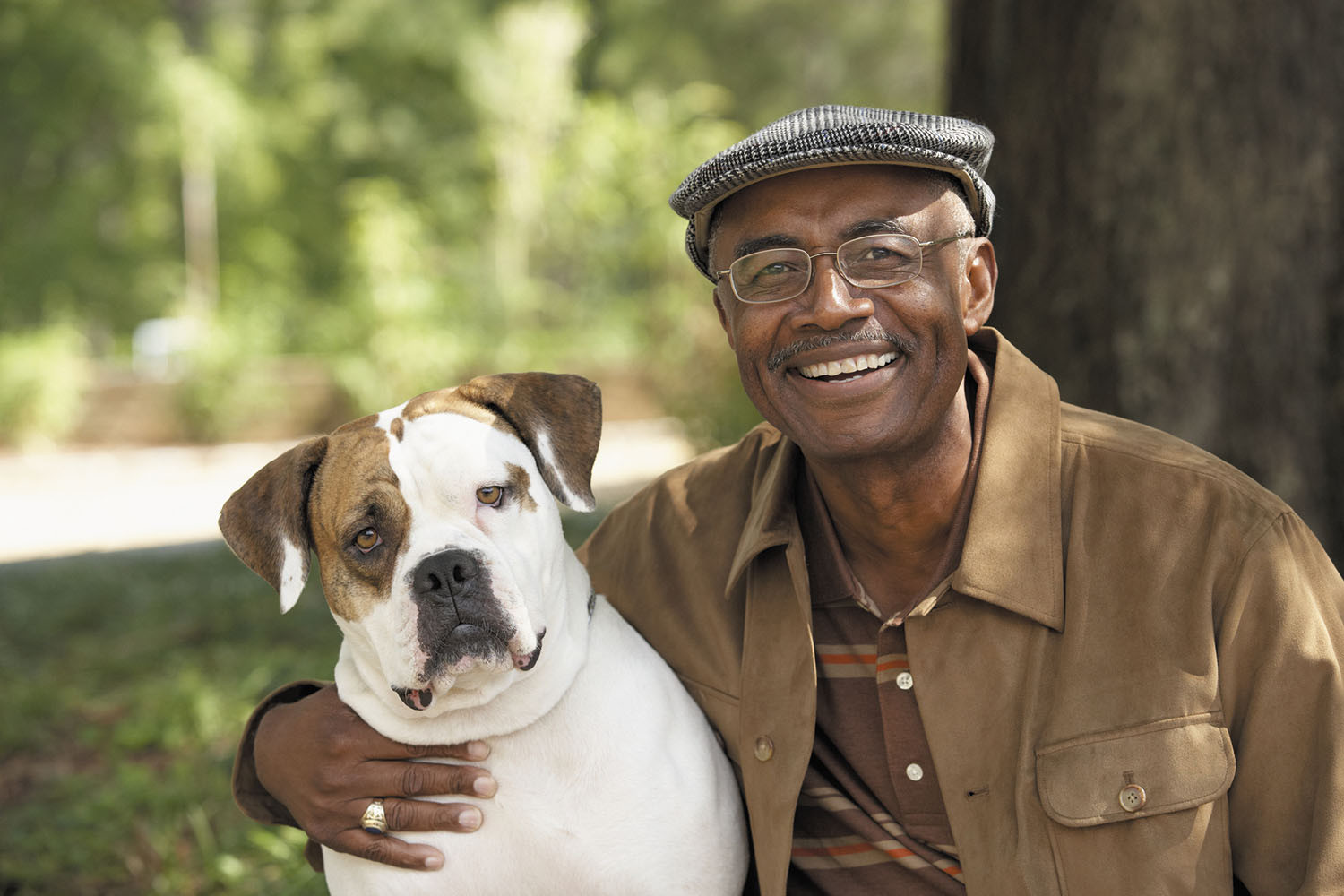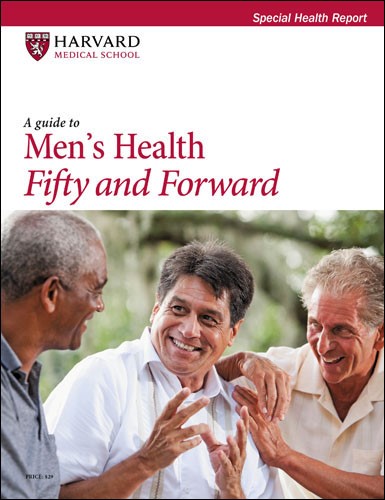Man's best (health) friend
Want to improve your mental and physical health? Get a dog.
- Reviewed by Howard E. LeWine, MD, Chief Medical Editor, Harvard Health Publishing; Editorial Advisory Board Member, Harvard Health Publishing

The saying goes that you can't teach an old dog new tricks. But a new dog can teach older adults how to stay active and healthy.
"Owning a dog can be one of the best ways to manage many health issues older adults face," says Dr. Beth Frates, director of lifestyle medicine and wellness in the Department of Surgery at Harvard-affiliated Massachusetts General Hospital. "It can be a real team effort, too. You take care of the dog, and the dog takes care of you."
How can a dog be your health's best friend? Here are a few examples.
Healthier heart
Research has consistently found that dog owners tend to have a lower risk of cardiovascular disease than non-owners. A study published in the August 2022 issue of Current Hypertension Reports suggested that having a canine companion helps prevent high blood pressure and may improve blood pressure control for those with the condition.
And research in the October 2019 issue of Circulation: Cardiovascular Quality and Outcomes reported that dog owners were 31% less likely to die from a heart attack or stroke than non-owners.
Having a dog may help you live longer if you suffer a heart attack or stroke. In the same issue of Circulation, another study found that among people who had a heart attack or stroke, those who owned a dog had a 33% lower death rate in the 12 years after a heart attack and a 27% lower death rate after a stroke than people without a dog.
One way dogs may improve heart health is that they make their owners more active, thanks in part to the ritual of daily walks. In fact, research has found that, on average, people with dogs walk about 20 minutes more per day than those without dogs.
Stress relief
Ever wonder why petting a dog is so pleasant? A study published online Oct. 5, 2022, by PLOS One found that interacting with a dog, especially petting, stimulates the human brain's prefrontal cortex, which helps regulate emotions. Petting also lowers cortisol, the stress hormone, and raises oxytocin, the feel-good hormone, according to Dr. Frates. "The effect can continue long after the dog is no longer present," she says.
Dogs also can teach us to relieve stress by practicing mindfulness. During walks, dogs are engaged in the moment and focus on the various smells, sights, and sounds of their environment. "Following their lead can help people to 'stop and smell the flowers' more often," says Dr. Frates.
Dogs even play the role of therapists. "Dogs are great listeners," says Dr. Frates. "There's always someone to talk to when you have a dog. Plus, most dogs also are good at reading body language and sensing your emotions. Sometimes a dog will know you are upset and instinctively sit next to you or jump onto your lap."
And, of course, never underestimate the mood-boosting power of dogs' unconditional love. "No matter what is going on with your life, dogs are always so happy to see you," says Dr. Frates.
The dogma of dog ownershipBefore you adopt a dog, there are certain aspects to consider, like the dog's size, strength, and energy levels. "Larger dogs may require more exercise and be more difficult to handle than smaller dogs," says Dr. Beth Frates, director of lifestyle medicine and wellness at Harvard's Massachusetts General Hospital. "But smaller dogs can be tripping hazards." Dogs also require an ongoing financial commitment. Besides food, dogs need routine vaccinations, regular medical check-ups, flea and tick prevention, grooming, and often training. If you're not ready for dog ownership, you can still increase your interactions with dogs. For example, offer to walk a friend's dog or to dog-sit. You can also volunteer at an animal shelter or hang out at a dog park. |
Social companions
Loneliness and social isolation are among the biggest health threats facing older adults, and dogs can help with both. "Dogs offer everyday companionship, and they depend on you for food and care, which creates a family-like bond," says Dr. Frates.
Dogs can help expand your social circle. When you're out with your dog, whether walking in your neighborhood or visiting a dog park, you have the chance to converse with neighbors, fellow dog owners, and even people you don't know. "People are drawn to dogs and want to interact with them and pet them, and in the process engage with you," says Dr. Frates.
Image: © Ariel Skelley/Getty Images
About the Author

Matthew Solan, Executive Editor, Harvard Men's Health Watch
About the Reviewer

Howard E. LeWine, MD, Chief Medical Editor, Harvard Health Publishing; Editorial Advisory Board Member, Harvard Health Publishing
Disclaimer:
As a service to our readers, Harvard Health Publishing provides access to our library of archived content. Please note the date of last review or update on all articles.
No content on this site, regardless of date, should ever be used as a substitute for direct medical advice from your doctor or other qualified clinician.
















